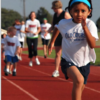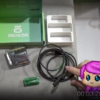In order to make dreams come true, you need to wake up

I’m a dreamer. Ever since the days that I first stacked discarded fence boards on top of cinderblocks to create my own laundry basket roller coaster and lined a large hole in the yard with garbage bags to create my own hot tub, I’ve been taking risks to bring my visions to life. Those visions don’t always work out.
In 2011, without fully understanding what I was getting myself into, I started a non-profit called Thinkersmith. It was far from my first business, but it was my first attempt at creating something bigger than myself with extended reach and global impact. I never quite turned a profit, relying on my own credit cards, tax refunds, and gifts/grants. The struggle was worth it. I was able to create a soap box for a topic that had gotten little to no play at the time: equity in computer science via early education.
By 2013, other orgs had started amplifying the message that the tech industry would never see diversity without early CS education. I was fortunate to have a solid contracting relationship with one of those new entities, Code.org, who was bringing attention to the fact that computer science could be taught well to students as young as kindergarten.
As Code.org began to grow, I was offered a full-time job. A serial entrepreneur, I declined their proposal, deciding instead to continue working on my own passion project. I remained connected to them through small projects, instead.
In 2015, the effects of serving hundreds of thousands of students on less than $20,000 a year became insurmountable. My personal finances were horrific and I had maximized my capabilities without additional funding. Meanwhile, Code.org was continuing to grow at an unbelievable rate using the curriculum that I had designed.
It was a HUGE wake-up call.
I could have the best intentions in the world, as well as the talent to back them up, and still manage to fail miserably without a system to support my vision.
After some heavy soul searching, I realized that if I wanted to continue to be effective, I needed to form an alliance to avoid getting voted off of the island too early. My relationship with Code.org was already strong and they were willing to offer me full direction over the space that I had spent so much time developing. It was a great partnership, even if it felt to me like the failure of my own venture.
While I enjoyed my work with Code.org immensely, I often lamented the loss of my individual identity in the CS education space. To mitigate that, I began a YouTube channel, KIKIvsIT, and started to write books for teachers and students that addressed things outside of the scope of what Code.org believed to be part of their mission.

In less than five years, we managed to introduce nearly 100 MILLION people to an hour of code. Close to 70,000 teachers experienced the professional development program that my team created and hundreds of thousands more used my curriculum without in-person training. That feels like a win.
Code.org is transitioning out of the start-up phase, and is making strides toward becoming an established organization. Between their change in company culture and the modest reparation of my own personal portfolio, adventure has started to call me again.
I have realized that my particular niche is reaching out to people who are new to CS concepts, and helping them understand by relating complex ideas to real life situations. This is valuable both for students learning CS for the first time, and adults trying to comprehend it well enough to teach others.
In a way, I feel like I have been awake for years, working hard and adding value to an under-appreciated area of education. Elementary CSEd is no longer an empty space. There are now hundreds of talented individuals making strides…well and loudly. It is a new day.
With that, I’ve decided that it’s time to leave Code.org and pay attention to some of my personal dreams again. I’m excited to announce that I’ve launched a Kickstarter for a children’s CS publication called Algorithms Magazine!
Algorithms Magazine is modeled after other popular offerings for kids, but with the goal of presenting CS ideas through puzzles, challenges, projects, jokes, poems, stories, articles, and more. I have a talented list of advisers and nearly a decade of practice with all of the skills that will be required to run the project.
The magazine will be accompanied by a website that supports parents in helping their children discover the lessons hidden within. It will also help teachers turn featured projects into classroom lessons.
I truly believe that this magazine will be the next step toward mainstream computer science literacy. You might call it a pipe dream, but I know that dreamers change the world.
To support Algorithms Magazine, please visit Kickstarter.



